Team Mutographs
Unusual mutation patterns




Cancer Grand Challenges is a global initiative that is building an elite, interdisciplinary community to take on and solve cancer’s most complex problems.
Co-founded by the two largest funders of cancer research in the world, Cancer Research UK and the National Cancer Institute in the US, Cancer Grand Challenges aims to accelerate high-impact research and translate discoveries for public and patient benefit by transforming how team science is conducted.
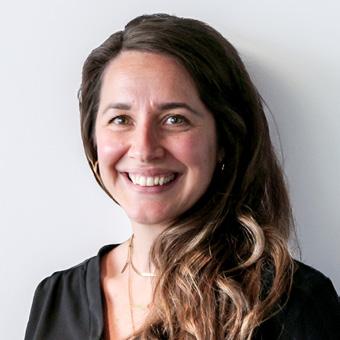
‘Mutographs’ ambition was on an epic and global scale, involving the collection and genomic analysis of samples from thousands of cancer patients worldwide.’
Gemma Balmer-Kemp Head of Research, Cancer Grand Challenges

In 2017, funded by Cancer Research UK, team Mutographs set out to tackle the unusual mutations patterns challenge, to discover how unusual patterns of mutation are induced by different cancer-causing events. By studying the tell-tale fingerprints etched into the DNA of both healthy and cancerous cells, the team aimed to identify unknown causes of the disease and shed light on geographical differences in cancer incidence.
When the challenge was set, the prevailing thinking in the field was that each disease risk factor or carcinogen would leave behind a distinctive pattern of mutations, known as a ‘mutational signature’. For example, cancers triggered by exposure to UV radiation will exhibit distinct signatures compared to those linked with tobacco use. Team Mutographs hypothesised that working backward from these mutational signatures could identify new, potentially preventable causes of cancer.
Mutographs brought together world-leading epidemiologists with computational biologists, geneticists and clinicians from the UK, US and France and connected them with cancer centres across the globe. Under the leadership of Professor Sir Mike Stratton then Director of the Wellcome Sanger Institute in Cambridge, UK. The research team was also made up of Dr Ludmil B. Alexandrov (University of California San Diego), Professor Allan Balmain (UCSF Helen Diller Family Comprehensive Cancer Center), Dr Paul Brennan (International Agency for Research on Cancer), Dr Peter Campbell (Wellcome Sanger Institute) and Professor David H. Phillips (King’s College London).
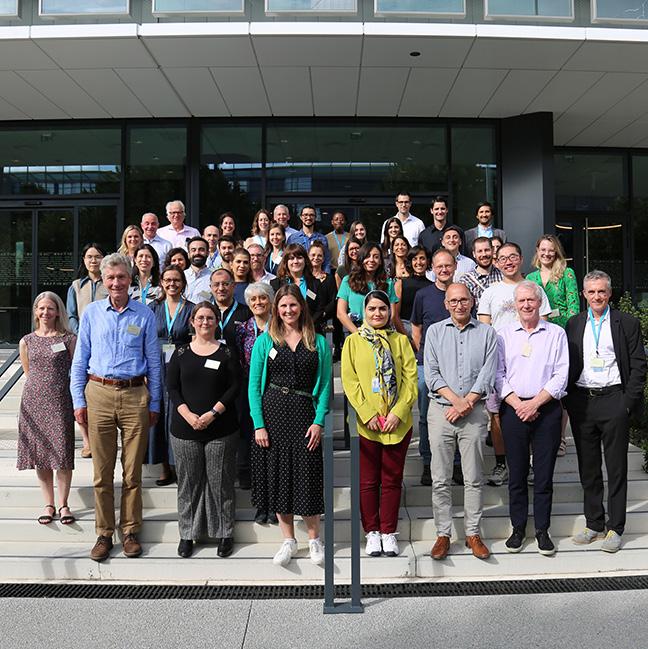

By utilising their novel ‘mutational epidemiology’ approach at an unprecedented scale, the team set out to comprehensively catalogue mutational signatures present in the genomes of both cancerous and normal cells, and thereby uncover the underlying mechanisms behind cancer development.
Thanks to a unique and pioneering strategic partnership between the Wellcome Sanger Institute and the International Agency for Research in Cancer (WHOIARC), enabled by Cancer Grand Challenges, the team gathered samples from 7,800 patients across eight cancer types – including pancreatic, kidney, oesophageal, bowel, head and neck, bladder and gallbladder. People were recruited from over 40 medical centres in more than 30 countries, spanning five continents. Critically, for each cancer type, patients were included from regions with high or low incidence rates. This extensive biorepository containing over 100,000 tissue samples along with detailed demographic, lifestyle, environmental, clinical data, and whole genome sequences, holds immense promise for future discoveries and will remain a valuable resource for the scientific community for years to come.
By studying this vast data, the team has uncovered several exposures linked to cancer incidence in multiple cancer types, which collectively affect potentially tens of millions of people. The team are working to determine the source of these exposures.
>100,000
Tissue samples collected
From:
> 40 medical centres
> 30 countries
5 continents
~15,000
Number of genomes sequenced
~1,000,000,000,000,000
Bytes of data
But through unexpected findings they have also made seminal discoveries that have transformed scientific understanding about the role of mutations in carcinogenesis. When the challenge was set, the predominant thinking in the field was that most carcinogens caused cancer by directly altering cellular DNA. However, by exposing mouse models to suspected carcinogens, the team observed that many carcinogens do not actually cause an increase in mutations, and presumably act via other means. In oesophageal squamous cell carcinoma the team also found no geographical variation in mutational signatures despite dramatic variance in global incidence rates. In addition, the team’s research has added to the body of work revealing that many healthy tissues harbour complex and diverse mutational landscapes.
Together, these findings have led to a major shift in how the scientific community thinks about how carcinogens cause cancer, reigniting interest in the promotional hypothesis of carcinogenesis, by uncovering an important role of non-mutagenic mechanisms. The team has simultaneously emphasised the critical role of mutations, highlighting they are essential, but in some cases not sufficient to drive cancer.
APOBEC mutagenesis
Promotional hypothesis
Mutographs awarded $25 million in funding
Characterizing Mutational Signatures in Human Cancer Cell Lines Reveals Episodic APOBEC Mutagenesis CELL
mutations and clonal dynamics in healthy and cirrhotic human liver NATURE
Tobacco smoking and somatic mutations in human bronchial epithelium NATURE
The repertoire of mutational signatures in human cancer NATURE
The mutational signature profile of known and suspected human carcinogens in mice NATURE GENETICS SEPTEMBER 2020
In lung, when sequencing bronchial epithelial cells, the team observed that smokers have elevated mutational burdens, however, they also identified a population of cells with normal mutational burdens. Strikingly this population was much larger in ex-smokers, suggesting that these cells, which have avoided tobacco associated mutagenesis, repopulate the bronchial epithelium after quitting smoking. These findings provide a new perspective on lung regeneration as well as identifying variation in levels of mutagenesis due to tobacco smoke.
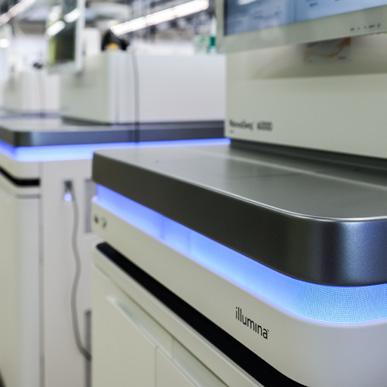

To enable reliable detection of somatic mutations in solid tissues, which are typically heterogenous and often polyclonal, team members at the Sanger developed laser-capture microdissection and lowinput DNA sequencing. This allows whole genome sequencing of small populations of cells whilst preserving tissue architecture, giving phenotypic and spatial information.
Reliable detection of somatic mutations in solid tissues by laser-capture microdissection and low-input DNA sequencing NATURE PROTOCOLS

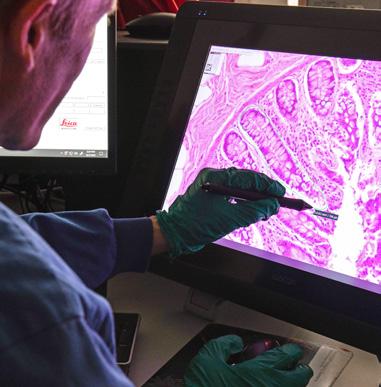
Increased somatic mutation burdens in normal human cells due to defective DNA polymerases NATURE GENETICS

It was thought the ageing phenotype is driven by the accumulation of somatic mutations in cells. By analysing tissues from individuals with inherited cancer predisposition syndromes, the team showed that although these individuals had elevated mutation rates in most normal cells, causing cancer susceptibility, they didn’t show other obvious ageing phenotypes. This indicated that the body could tolerate higher mutation rates and suggested that the somatic mutational theory of ageing was more complex than just the accumulation of mutations driving the ageing phenotype, challenging another longstanding dogma of the field.
Convergent somatic mutations in metabolism genes in chronic liver disease NATURE
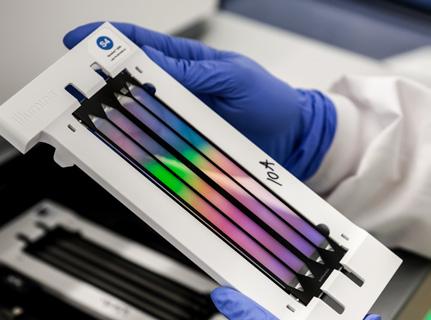
In liver, the team detailed the mutational signatures of normal hepatocytes, and when sequencing individuals with liver diseases observed mutations in key metabolism regulatory genes. These were acquired in multiple clones independently, suggesting convergent evolution, with a new class of “driver” mutation providing a protective mechanism against lipotoxicity associated with liver disease. This work highlights the team’s approach can be used to discover biological pathways that mitigate the effects of systemic diseases, and be used to identify targets that could be exploited therapeutically.

Mutational signatures in esophageal squamous cell carcinoma from eight countries with varying incidence NATURE

Mapping clustered mutations in cancer reveals APOBEC3 mutagenesis of ecDNA NATURE
Mechanisms of APOBEC3 mutagenesis in human cancer cells NATURE
Multiple seminal papers from the team come together to change the way we think about carcinogenesis. In the classical view, carcinogens cause mutations, and these mutations cause cancer. But the team demonstrated that normal tissues have diverse mutational profiles, already carrying oncogenic mutations. Mutographs went on to show in mouse models that 17/20 suspected carcinogens did not cause mutations, despite promoting tumour formation. The team’s findings in oesophageal squamous cell carcinoma then found no mutational signatures that could account for the extreme variance in global incidence rates. Together, Mutographs work has highlighted the importance of non-mutagenic mechanisms of cancer promotion.
The team revealed episodic bursts of APOBEC activity, demonstrated a causal role in the generation of mutational signatures SBS2 and SBS13, identifying APOBEC3A as the main family member responsible, and highlighted a role for APOBEC3 in ecDNA mutagenesis.

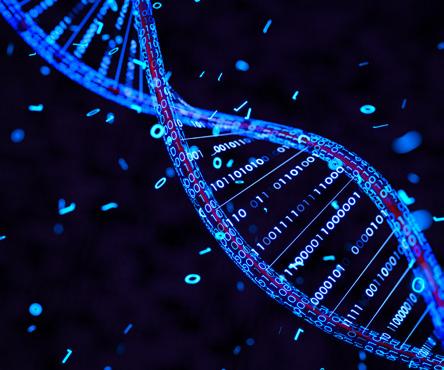
Topography of mutational signatures
Quotient Therapeutics launched, Mike Stratton, Inigo Martincorena and Peter Campbell are academic co-founders

The Mutographs biorepository: A unique genomic resource to study cancer around the world CELL GENOMICS
The Complexity of Tobacco Smoke-Induced Mutagenesis in Head and Neck Cancer MEDRXIV

The team revealed three different mutational processes associated with tobacco smoke. Improved sampling resolution showed variation of these processes across anatomical sites as well as the interplay of alcohol and tobacco exposure in combining to cause mutations.
Geographic variation of mutagenic exposures in kidney cancer genomes NATURE
The long-term effects of chemotherapy on normal blood cells BIORXIV
The mutagenic forces shaping the genomes of colorectal cancers from 5 continents
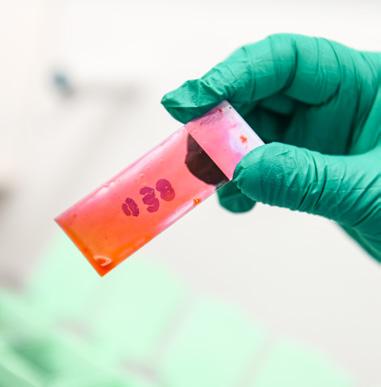

Mutographs revealed a rich landscape of exposures accounting for geographical variance in clear cell renal cell carcinoma, demonstrating the power of its mutational epidemiology approach. The team identified a new widespread signature, SBS40b, which potentially explains the variation in incidence across the world, with mutation loads correlating with incidence rates. Mutographs also found a new signature unique to Japan, SBS12, and that exposure to aristolochic acids was much more widespread than previously thought in the Balkan region.
The team is changing the way the field thinks about the cause and mechanisms of somatic mutations by studying the impact of chemotherapy in normal tissues.

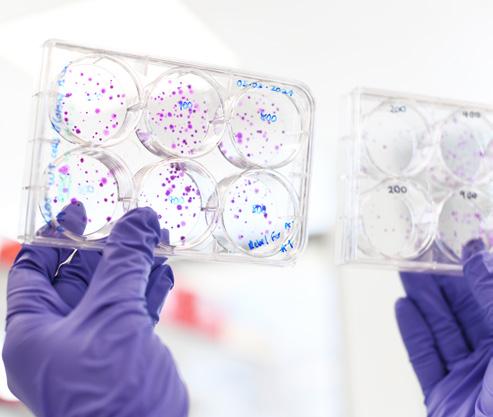

In colorectal cancer, emerging findings from the team identified multiple mutational signatures likely caused by toxins produced by specific bacteria within the gut microbiome. These signatures correlate with incidence rates and are also more common in those with early onset disease, occurring before the age of 50, which could explain recent increases in incidence in this group.
...with work on breast, pancreas and gall-bladder still to come

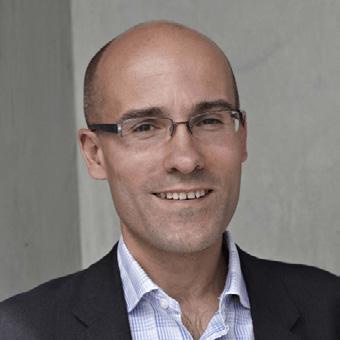
‘The team’s findings showing that many carcinogens don’t actually induce DNA mutations totally changed our understanding of how cancer starts in the first place. That is a hugely important finding, because it completely opens up a whole new opportunity in the field of cancer prevention. The team has changed our fundamental view on cancer.’
To enable these groundbreaking discoveries, the team developed a suite of AI-powered tools to identify and analyse mutational signatures. The team has made all of these tools widely available to the scientific community. This includes SigProfiler and all of its variants (Extractor, Topography, Clusters, Plotting, Matrix Generator, Simulator, Assignment), as well as the Mutational Signature Attribution (MSA) tool. These tools have already been extensively adopted, adding to the team’s scientific legacy that will drive further discoveries. The team has also enhanced the provision of the widely used Catalogue of Somatic Mutations in Cancer (COSMIC) web portal, adding more than forty mutational signatures and other new features.
Mutographs trainees have become members of a new generation of cancer researchers where ideas are constantly exchanged across time zones and geographical regions in order to solve the most complex and pertinent questions in cancer biology. This continued interaction has led to previously unseen global collaborations, forging long-lasting scientific relationships. Cancer Grand Challenges funding has enabled the Mutographs team to train over 15 PhD students and 25 postdoctoral researchers, with five going on to establish their own independent research groups so far.
Patient advocates are embedded into Cancer Grand Challenges teams and are important members of the teams we fund to address cancer’s toughest challenges. The Mutographs team included two patient advocates: Mimi McCord and Maggie Blanks. They initially focused on gaining an understanding of the cultural, socioeconomic and societal contexts of cancer care and research in some of the countries where the team was collecting samples, to inform on how to best communicate any relevant healthcare messages. Mimi and Maggie then worked alongside the researchers to create lay language documents, review data collection documentation and brought about the inclusion of the patients’ voice in ethical review discussions of partnering institutions. The initiative is learning from the inaugural teams’ experiences, both the advocates and researchers, to ensure the patient voice and experience is at the heart of our work.
Number of postdoctoral researchers trained $25m 8 15 5 36 25

Team Mutographs has pioneered the field of mutational epidemiology, paving the way for potential new approaches to cancer prevention. The team’s groundbreaking discoveries range from identifying unknown mutational signatures and uncovering multiple widespread mutagenic exposures of known and unknown causes, to revealing the complex mutation patterns in healthy tissues, challenging the somatic theory of ageing, as well as adding to the body of evidence for the promotional theory of carcinogenesis.

Mutographs’ findings have fed into the work of multiple other teams and directly led to Cancer Grand Challenges setting the normal phenotypes challenge. In 2020, the PROMINENT team was funded to investigate how cells maintain a normal phenotype despite harbouring cancercausing mutations and what causes them to become cancerous. Researchers from Mutographs are now working to determine the source of the unknown exposures causing the identified mutational signatures and further expanding their mutational epidemiology approach, toward a complete global catalogue of mutational signatures.
The team’s findings, with more still to be published, have already changed the way we think about cancer, demonstrating the power of global team science. Together with the tools and techniques developed, the vast biorepository created and the future leaders trained they form a legacy that will accelerate routes to cancer prevention.
